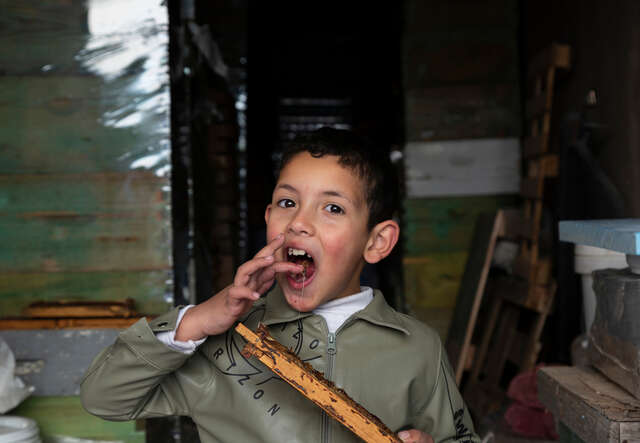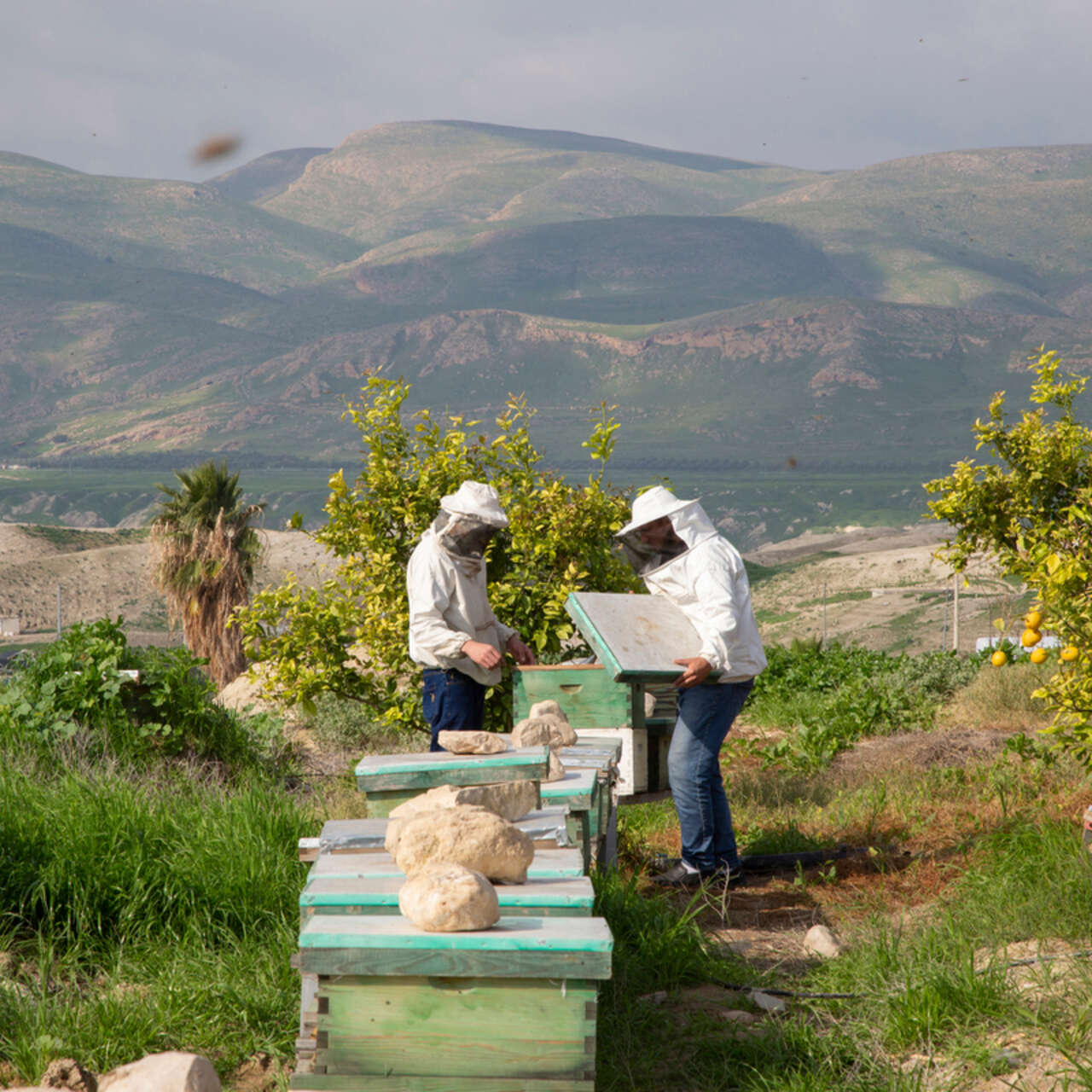
Catching up with the most passionate beekeeper in Jordan
“I want everyone to become beekeepers!” Huthaifa has faced bee-killing pesticides and shared honey with King Charles III. We revisited the passionate beekeeper, five years on.

“I want everyone to become beekeepers!” Huthaifa has faced bee-killing pesticides and shared honey with King Charles III. We revisited the passionate beekeeper, five years on.
“I love everything about bees,” says Huthaifa, smiling through the net of his bee suit, “the life of a bee is full of work. From sunrise to sunset. All day long. They're always in the field, moving from one flower to another.”
From amateur beekeeper to thriving businessman, Hutiaifa’s business journey over the past five years hasn’t been easy. The COVID-19 pandemic, changing environments and harmful pesticides are all setbacks he’s had to face all whilst providing for his growing family. Despite challenges, he’s motivated to continue expanding his business in Jordan and beyond while encouraging more people to take an interest in beekeeping.
Huthaifa’s passion for beekeeping began in 2018 when he decided to keep three boxes on the roof of his house. “Over time, it grew from a hobby to a job, and I aspired to turn it into a business.”
With a business grant from the IRC and Citi Foundation's Resilient Futures program, Huthaifa’s aspirations to turn his passion into a business started to become reality. “As the years passed, in five years, the number of boxes grew to 80, then to 130-140,” he says. “Now every year in the spring, we develop and increase the number of beehives. In the last year and a half, about 70% to 80% of my income came from beekeeping. I spend that money on my wife, children, and the house.”
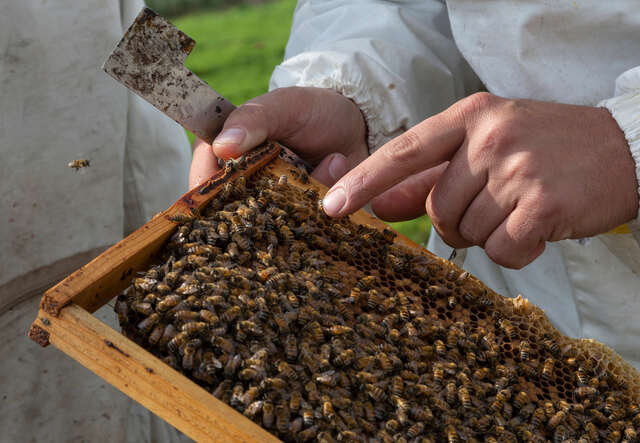
Since 2019, Huthaifa’s business has been supported by the IRC and Citi Foundation's Resilient Futures program through grants but also access to markets to sell his products. “Every time there is a meeting with the International Rescue Committee, it gives me more motivation to move forward. It doesn't make you want to stop.”
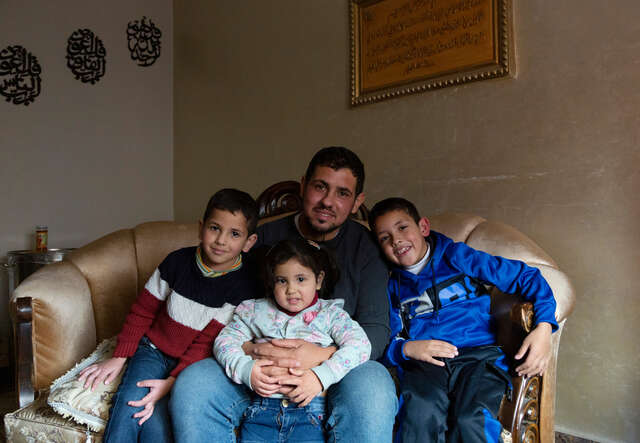
Last year, the Resilient Futures program helped Huthaifa create a website to sell his honey products online. “I also created a page on Instagram, TikTok and Facebook,” says Huthaifa. “I promote my products on them and try to reach people outside Jordan.”
Visit Huthaifa's Instagram here.
“We used to produce for our neighbors and friends. Now we are producing and exporting abroad. Some people sell the product in the Saudi market,” Huthaifa tells us. “Our goal is to increase our production and expand more.”
In 2021, our patron, the then HRH The Prince of Wales (Now King Charles of England), visited the IRC’s programs in Jordan. Huthaifa was invited to bring his products. “When he saw that we had honey, he was surprised because most of the country is desert, there are no green landscapes,” says Huthaifa of his meeting with the King. “I gave him honey as a gift. He said to me, “I'm also a beekeeper.” I have bees in the royal palaces and I would like to send you some.” I said to him, “Of course."
“Two weeks later, he sent me honey as a gift!” Huthaifa told us. “I sent him a letter, thanking him for the delicious honey. I still have that honey to this day.”
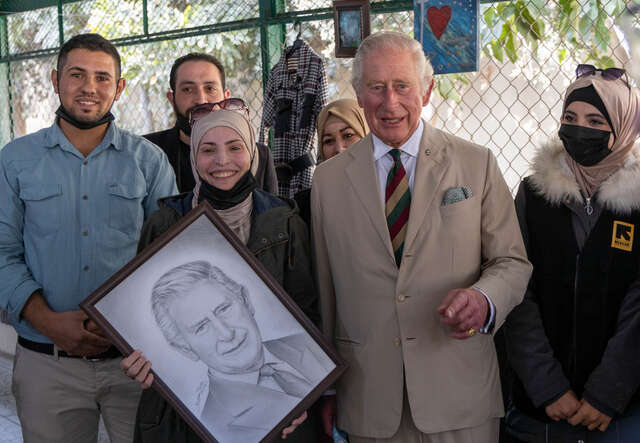
As the sun shines down over the farms of the Jordan Valley, Huthaifa and mentee and friend Ahmed attend to the dozens of boxes of bees. The pair work in unison, dressed in white beekeeper suits, gently checking on the hives, box by box.
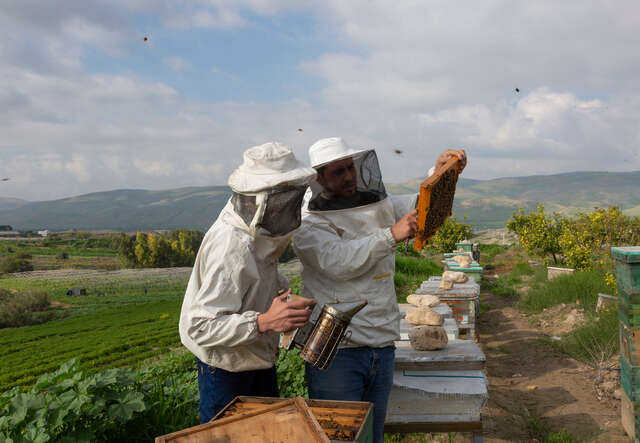
“I met him [Ahmed] through the IRC,” Huthaifa explains. “The team introduced me to him. They told me that ‘we have a beekeeper who wants to start a beekeeping business. So, please help him out, take care of him to help him improve and start a business.” A year and a half later the pair are working closely together. “I consider Ahmad a friend and a brother. After I got to know him, I loved that he is passionate about beekeeping. I wanted to help him more.”
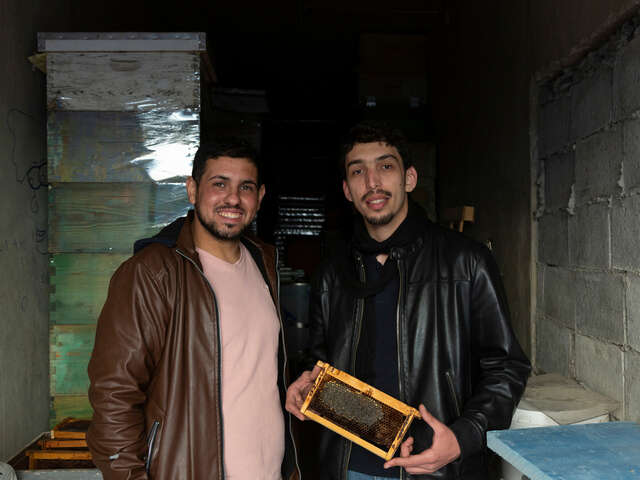
Ahmad isn’t the only person Huthaifa has become a mentor for. He is often helping people, especially other beekeepers. “I have a page on Facebook. It currently has about 14,000 beekeepers from all over the world. We share experiences with each other.”
“I want everyone to become beekeepers,” says Huthaifa, “because if bees cease to exist, life on Earth will be no more.”
Since learning about bees, Huthaifa’s deep passion for nature and the environment has grown. “If we do not preserve the environment, we destroy the entire planet. The problems that happen around the world, earthquakes, hurricanes, destruction are all because of mankind's failure to preserve the environment and nature,” Huthaifa says. Changing environments, harmful pesticides and the coronavirus pandemic are all challenges Huthaifa has had to face.
But with support, he persevered. Huthaifa explains that the opportunities he received through the Resilient Futures program helped him to market himself and continue to build his business. “In 2019, they [the IRC] came and filmed a video with us,” he says. “I used the video to promote my beehives. After that, everybody knew that Huthaifa has beehives, he has a video, a website and everything.”
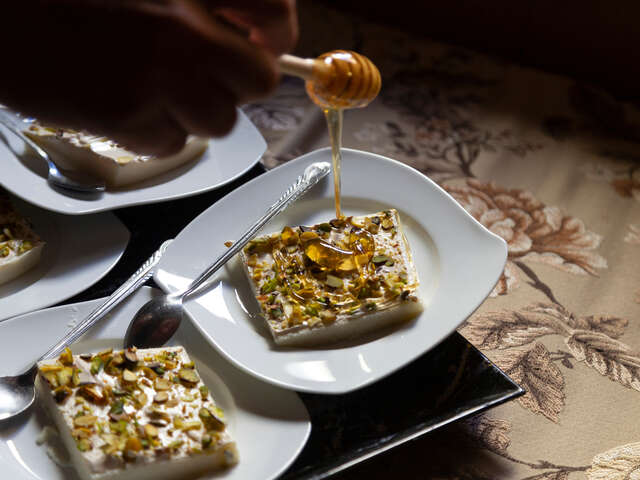
“I use the photo from when King Charles came to Jordan, too. It gave me the motivation to continue. And here we are in 2024. I am more motivated than ever. You feel that year after year, one improves and is more motivated than ever.”
Huthaifa has big dreams for his business. “I hope it keeps growing until it becomes a global brand. I want to think outside the box. The sky's the limit. I want the business to grow to the point we have full-time employees and a huge company.”
